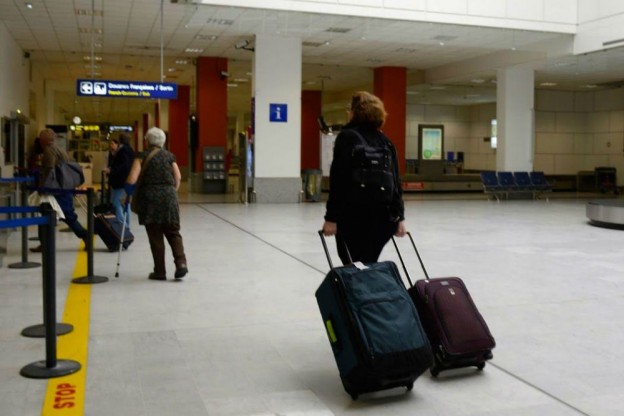In the first three months of 2015, U.S. airlines raked in a record-setting $1.6 billion in checked-baggage fees and ticket-change fees. That’s up 7.4% from the same period last year. With the airlines’ profits at record highs, do you really want to give them an even bigger chunk of your trip budget? I didn’t think so. So here’s what you can do to avoid these fees:
How to avoid baggage fees
1. Get a credit card that exempts you from them.
The standard fee for checking a bag is $50 round-trip but, depending on the size and weight of your luggage, can be as high as $400 internationally. Each of the three major U.S. airlines offers a co-branded credit card that waives such fees when you fly that airline. And these credit cards cost nothing for the first year, so you have little to lose by trying one for 12 months. United offers the United MileagePlus Explorer Visa card from Chase; it provides one free checked bag to both the cardholder and one travel companion ticketed on the same reservation. American offers the Citi/AAdvantage Platinum Select MasterCard from Citibank; it provides one free checked bag for the cardholder and up to four travel companions. Delta offers the Gold Delta SkyMiles card from American Express; it lets you and up to nine companions check a bag for free. For all three cards, the $95 annual fee is waived the first year. The United and Delta cards charge no foreign-transaction fees.
2. Fly an airline that does not charge baggage fees.
Southwest charges no baggage fees, and some JetBlue fares still incur no baggage fees.
How to avoid or minimize ticket-change fees
1. If you think you may need to change an airline ticket, buy it with miles.
Change fees, which are typically $200 for domestic tickets and up to $450 for international flights, are more lenient for mileage-award tickets. American Airlines, for instance, lets you change mileage-award flight dates and times for free or, if your new departure date is within 21 days, for $75. United lets you change your travel dates for $75 or, if your new departure date is within 21 days, $100. Fees for changes to mileage-award tickets are lowered or waived for fliers with elite status.
2. Choose an airline that offers changes for free.
Southwest Airlines does not charge ticket-change or cancellation fees. Alaska Airlines offers free changes if you make them 60 days or more in advance.
3. If the flight is not very expensive, look into booking two one-way tickets rather than one round-trip.
Time was when two one-way tickets cost significantly more than one round-trip. Nowadays, though, more and more, they cost the same. So, if you’re unsure about either your outbound or return date, consider buying two one-way tickets, especially if each one-way fare is less than the airline’s change fee. Say a round-trip costs $300 and the airline’s change fee is $200. If you bought two $150 one-way fares and you had to change the outbound or the return, you could simply throw out the $150 ticket (and buy a new one), saving yourself $50. If you’re unsure of both your outbound and return dates, you’re probably better off buying the round-trip because you can change both dates with only one change fee.
Do you have any suggestions I’ve missed? I’d love to hear them—as, I’m sure, would everyone else! Please weigh in below.






